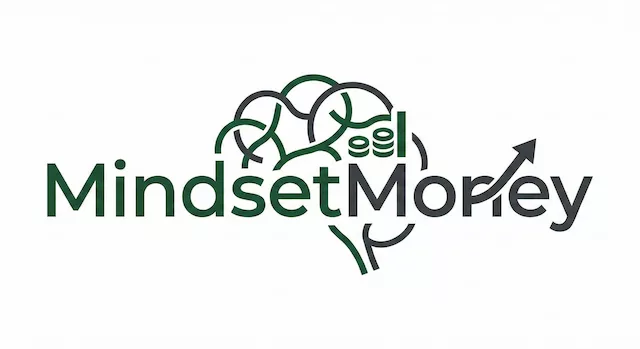Managing your money can feel overwhelming, especially with so much advice out there. But don’t worry—personal finance isn’t as complicated as it seems. In fact, understanding the basics can give you the power to make smarter decisions, reduce stress, and achieve your financial goals.
In this guide, we’ll break down what personal finance is, why it’s crucial, and how you can start managing your money effectively, especially if you’re living in Canada.
What Is Personal Finance?
Personal finance refers to how you manage your money. It covers everything from earning, budgeting, saving, investing, and spending to planning for retirement and handling debt. In other words, it’s all about making informed decisions to improve your financial well-being.
Personal finance encompasses the following key areas:
- Income: The money you earn through your job, business, investments, or other sources.
- Budgeting: Planning how to allocate your income to cover expenses, savings, and investments.
- Saving: Setting money aside for short-term or long-term goals (e.g., an emergency fund, vacation, or house down payment).
- Investing: Growing your wealth by putting money into assets like stocks, bonds, ETFs, or real estate.
- Debt Management: Paying off and managing debts like credit cards, loans, or mortgages.
- Retirement Planning: Preparing financially for life after work using tools like TFSAs, RRSPs, or pensions.
Why Is Personal Finance Important?
Understanding personal finance is essential because it empowers you to make informed decisions and avoid common pitfalls. Here are some key reasons why personal finance matters, especially for Canadians:
Achieve Financial Security
Having a solid grasp of personal finance helps you prepare for unexpected expenses. Building an emergency fund ensures you can handle car repairs, medical bills, or job loss without falling into debt.
Avoid and Manage Debt
Debt can quickly spiral out of control if you’re not careful. Effective personal finance strategies help you:
- Avoid high-interest debt (like credit cards).
- Pay off existing debt efficiently using methods like the snowball or avalanche method.
- Use debt wisely, such as taking out a mortgage or a low-interest student loan.
Plan for Major Life Goals
Whether you want to buy a home, start a family, travel, or retire early, personal finance helps you map out a plan to achieve these goals. Understanding how to save and invest makes big milestones more attainable.
Retire Comfortably
Retirement might seem far off, but planning early can make a big difference. Canadian retirement tools like RRSPs (Registered Retirement Savings Plans) and TFSAs (Tax-Free Savings Accounts) offer excellent ways to save and grow your money tax-efficiently.
Reduce Financial Stress
Worrying about money can take a toll on your mental and physical health. When you have a budget, an emergency fund, and a plan for your goals, you’ll experience less anxiety and more peace of mind.
Grow Your Wealth
Investing is a key part of personal finance that allows you to build wealth over time. Whether you invest in stocks, bonds, ETFs, or real estate, the goal is to make your money work for you. The earlier you start, the more you benefit from compound interest—where your investments earn interest on both the original amount and the interest already earned.
Understand the Canadian Financial System
Personal finance in Canada comes with its own unique tools, taxes, and strategies. For example:
- TFSA vs. RRSP: Knowing when to use each account helps maximize your savings.
- Credit Scores: Understanding how your credit score works helps you qualify for better interest rates.
- Canadian Tax System: Managing taxes efficiently can save you money.
Key Components of Personal Finance for Canadians

Let’s break down the key components of personal finance that every Canadian should focus on:
Budgeting
A budget helps you plan where your money goes each month.
A simpler and flexible budgeting solution for beginners in personal finance is the 80/20 Rule, which focuses on saving and simplicity rather than rigid categorization. Here’s how it works:
- Save 20% of Your Income First:
- Before spending on anything else, allocate 20% of your after-tax income to savings or debt repayment. This helps establish a habit of “paying yourself first.”
- Use 80% for Everything Else:
- Spend the remaining 80% on both needs (housing, groceries, transportation) and wants (entertainment, dining out). While this percentage covers a broad range of expenses, beginners are encouraged to prioritize essential needs within this category.
Saving
Set up an emergency fund to cover at least 3-6 months of expenses. Also, save for specific goals like:
- Buying a home
- Traveling
- Retirement
Investing
Start investing early to take advantage of compound growth. Consider:
- TFSAs (Tax-Free Savings Accounts)
- RRSPs (Registered Retirement Savings Plans)
- Index Funds or ETFs for diversification
Managing Debt
Prioritize paying off high-interest debt (e.g., credit cards) and manage good debt (e.g., mortgages). Strategies include:
- Debt Snowball Method: Paying off the smallest debt first for quick wins.
- Debt Avalanche Method: Paying off high-interest debt first to save on interest.
Retirement Planning
Plan for retirement with Canadian tools like:
- RRSPs for tax-deferred growth.
- Employer Pensions or Group RRSPs.
- TFSAs for tax-free withdrawals.
How to Get Started with Personal Finance
- Set Financial Goals: Identify what you want to achieve (e.g., debt-free, buy a home, retire by 60).
- Create a Budget: Track your income and expenses using a budgeting app or spreadsheet.
- Build an Emergency Fund: Save at least 3-6 months of expenses.
- Pay Off High-Interest Debt: Prioritize credit card or loan debt.
- Start Investing: Open a TFSA or RRSP and start with low-cost ETFs or index funds.
- Educate Yourself: Read personal finance books, blogs, or listen to podcasts.
Final Thoughts
Personal finance isn’t a one-size-fits-all approach—it’s deeply personal, and what works for one person might not work for another. Each of us has unique circumstances, passions, and goals, and your financial plan should reflect that.
Where you are in your life stage—whether you’re just starting out, building a career, or planning for retirement—will influence your priorities. For example:
- Young professionals might focus on paying off student loans and starting their first investments.
- Families might prioritize saving for a home, building an education fund for their kids, or creating financial stability.
- Retirees may focus on preserving wealth and generating passive income.
Additionally, your passions and values play a significant role. Maybe you want to save aggressively so you can travel the world, or perhaps you’re more focused on building a legacy for your family. There’s no “right” way—it’s about aligning your financial choices with what matters most to you.
The key is to make personal finance work for you. That means:
- Taking stock of your current situation.
- Setting goals that reflect your values and dreams.
- Creating systems that match your lifestyle and personality—whether that’s automating savings, tracking every penny, or simply sticking to a general plan.
Remember, the most important thing is to start where you are and make progress at your own pace. Personal finance is a journey, not a sprint, and by tailoring it to your unique circumstances, you’ll build a financial life that truly supports you.
Ready to take the next step? Start with one small change today, and watch how it builds momentum toward achieving your financial goals.
